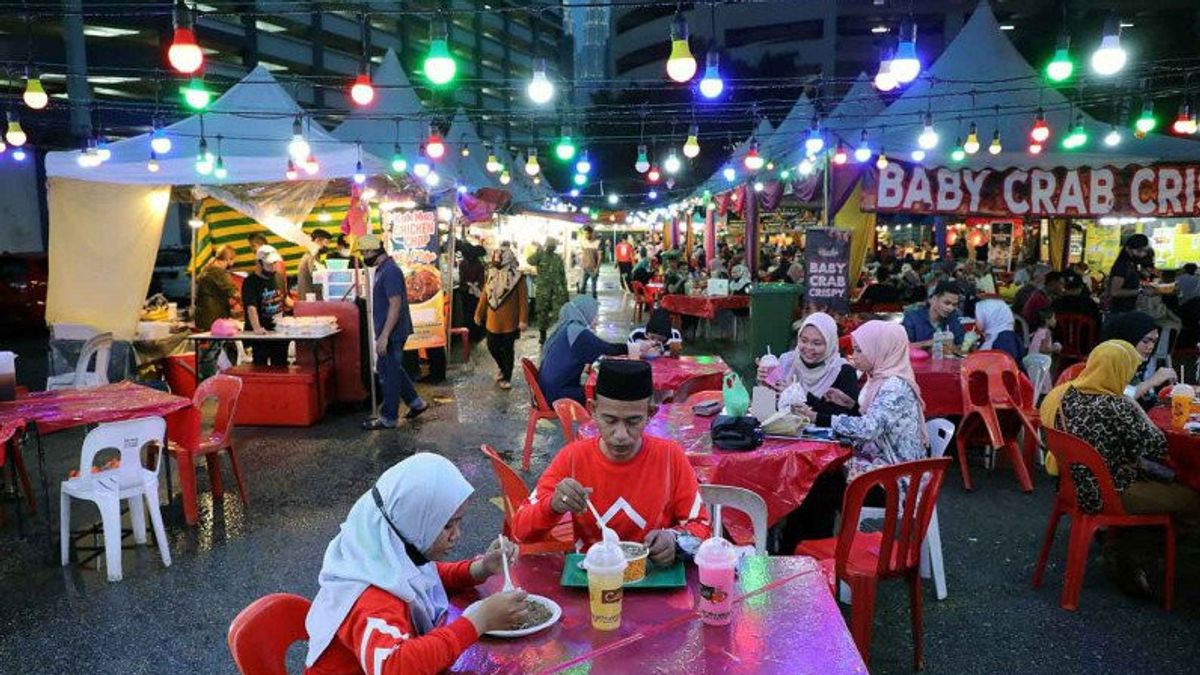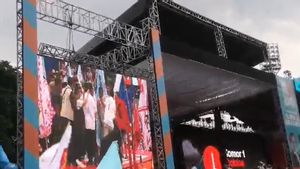KUALA LUMPUR - Mohd Rezuan Othman will usually travel from Kuala Lumpur to his hometown in southern Malaysia to celebrate Eid al-Fitr with his family.
But the recent national lockdown related to COVID-19 has extinguished its plans for the second year in a row.
Under the policy announced on Monday, MAY 10, a few days before Eid al-Fitr, Mohd Rezuan and millions of others were asked not to meet their loved ones at the annual celebration due to travel restrictions.
"I haven't been back home to Raya for almost two years, and during that time I haven't met my parents," the 40-year-old cook said, speaking Malaysian for Eid al-Fitr as quoted by Antara on Wednesday, May 12.
Malaysia was one of the first countries in the region to impose strict lockdowns last year to control the pandemic. By 2020, the country has suffered its worst economic downturn since the Asian Financial Crisis in the late 1990s.
A surge in the number of cases that began at the end of last year prompted the government to impose a state of emergency in January, and Prime Minister Muhyiddin Yassin on Monday declared a nationwide lockdown for a month to deal with the new surge that is again emerging.
Malaysia's number of kasis surpassed 444,000 with 1,700 deaths as of Monday (10/5), the third highest infection rate in the region after Indonesia and the Philippines.
Some, such as Rusyan Sopian, believe that travel restrictions are a sensible step given health authorities have said that the surge may be linked to the spread of more contagious variants.
"If (the policy) can help contain the virus, then I accept it," the 38-year-old author said.
But beyond the disruption to social life, repeated lockdowns have become a threat to the well-being of Mohd Rezuan and many other malaysians.
The holy month of Ramadan usually brings a business flow to restaurants and food bazaars that prepare food for millions of Muslims who break their fast after sunset. About 60 percent of Malaysia's population of 32 million is Muslim.
"I work in the food industry. One time it was open, the other was closed," said Mohd Rezuan, while talking during his break on the sidelines working at a restaurant located on the outskirts of Kuala Lumpur that is usually so crowded, but now it is quiet.
"One time my salary was sufficient, and the other one was not. How can I survive?" he said.
The English, Chinese, Japanese, Arabic, and French versions are automatically generated by the AI. So there may still be inaccuracies in translating, please always see Indonesian as our main language. (system supported by DigitalSiber.id)








